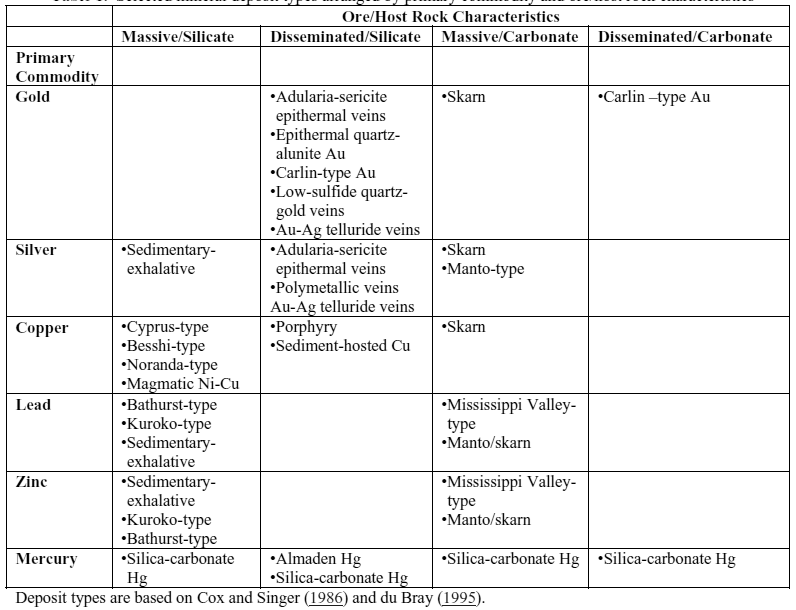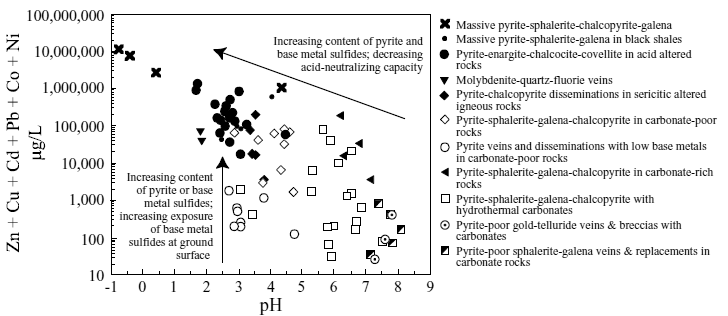

Figure 1. Ficklin plot of the sum of the base metals Cd, Co, Cu, Ni, Pb, and Zn versus pH illustrating the variation of mine drainage chemistry as a function of the geologic characteristics (type) of specific mineral deposits. Modified from Plumlee and Nash (1995), and Plumlee (1999).
USGSによる『Progress on Geoenvironmental Models for Selected Mineral Deposit Types』から